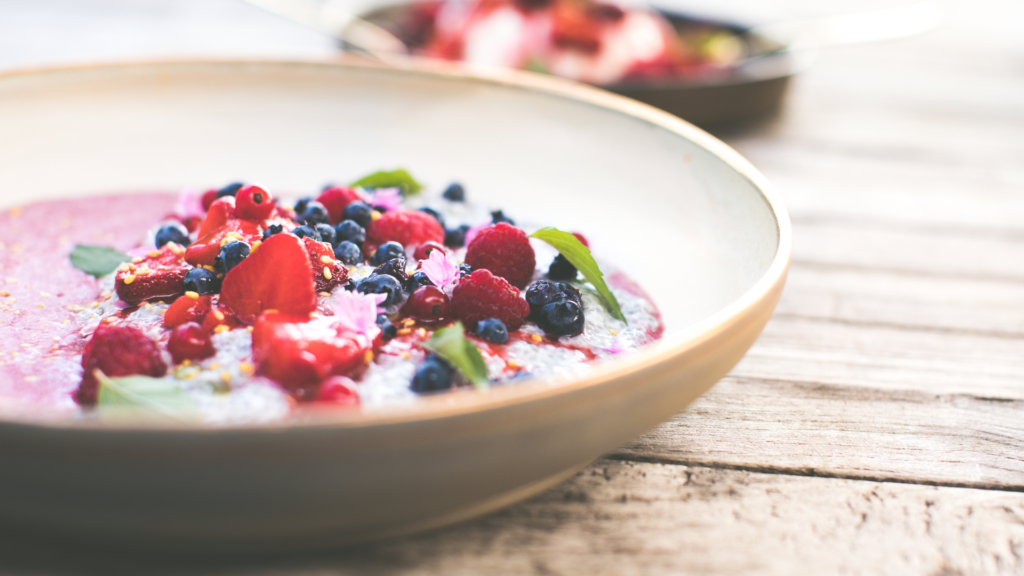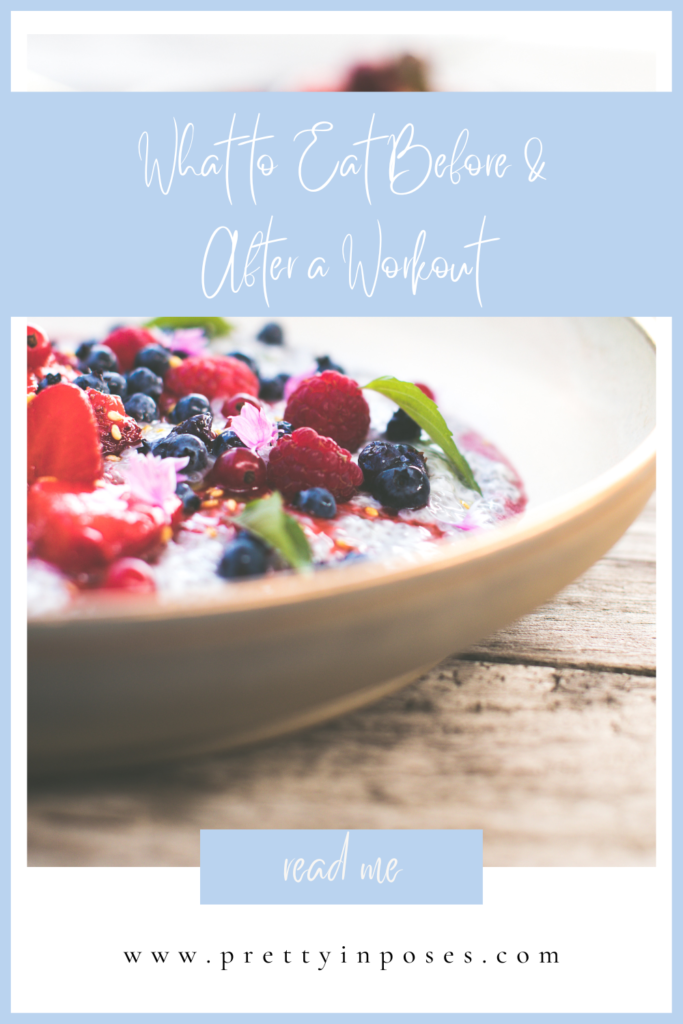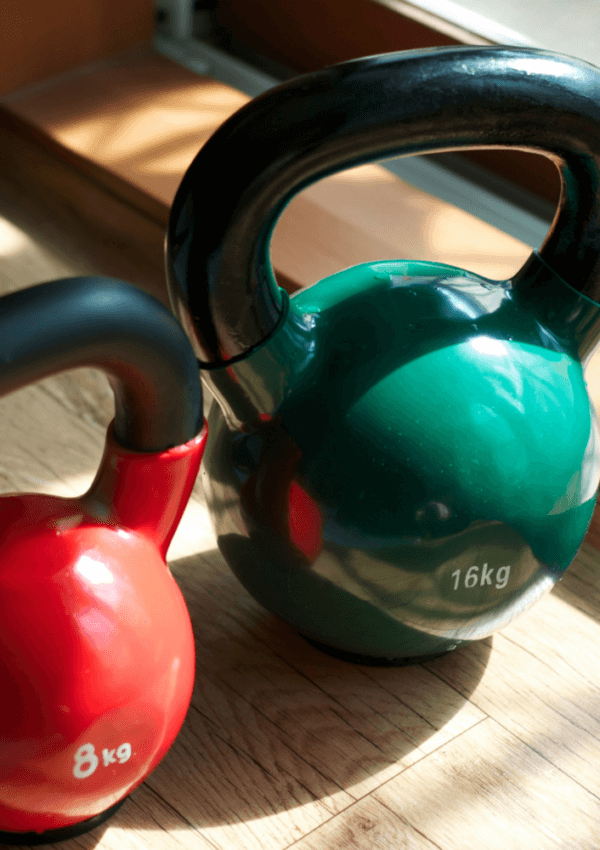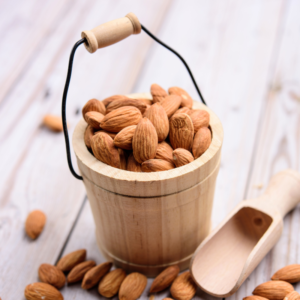
This post delves into what to eat before and after a workout.
Do you ever think about what to eat before and after a workout?
If you answered no, you’re not alone.
Many people don’t consider their diet when starting a fitness regimen; however, it could be instrumental in helping you reach your goals.
That’s why today’s topic is all about nutrition.
What to eat, what not to eat, when, and how much pre- and post-workout. So, let’s get started!
Should You Eat Before a Workout?
To eat or not to eat? That is…the actual question that fitness enthusiasts have debated for years.
Some swear by exercising on an empty stomach (like me), while others wouldn’t step foot inside a gym without a pre-workout snack.
So, what’s the deal? Should you eat beforehand or not?
Well…As a general rule of thumb, if your workout is higher in intensity or spanning more than an hour, it’s probably a good idea to grab a bite to eat before.
But timing is a factor. Therefore, try to consume a pre-workout meal at least two to three hours prior to your activity.
This gives your body ample time to digest and convert those nutrients into fuel for your workout.
However, eating too soon before exercising can lead to its own set of troubles.
This scenario may cause you to feel sluggish and weighed down. You may even experience some pretty unpleasant gastrointestinal issues.
Alternatively, if your workout is shorter or falls into the low-intensity category, you might skip the pre-workout snack altogether.
The best advice anyone can give is to just listen to your body. If you’re already feeling pumped and don’t need to eat, go for it!
What to Eat Before a Workout
Now we’re diving into what you should fuel your body with before a workout. Just remember that factors like the time of day, duration, intensity levels, and your specific fitness goals all play a role in determining what’s best for you.
If Your Workout is Less than an Hour
Generally speaking, it’s a good idea to include carbohydrates and proteins in your pre-workout meal or snack.
Carbohydrates are your body’s primary energy source, while proteins help build and repair muscle.
If you’re gearing up for a workout that’s less than an hour long, particularly in the morning, you might not necessarily need to eat anything beforehand – especially if your goal is weight loss.
In fact, exercising on an empty stomach in the morning can actually help your body burn a higher percentage of fat, giving you more energy to power through your workout.
If Your Workout is More than an Hour
If you’re planning to sweat it out for more than an hour, you’ll need enough energy to power through your workout.
In this case, it’s a good idea to munch on some easily digestible carbs, even if it’s just ten or fifteen minutes before you start.
Snacking on a handful of blueberries or some dry cereal can give you a little boost.
However, if you have about thirty minutes to an hour before your workout aim for more fuel.
Grab a rice cake with nut butter, a half cup of yogurt with granola and berries, or try a sports drink.
Should You Eat After a Workout?
Whether to eat after a workout and how much is also determined by the length, intensity, and type of physical activity you perform.
Not everyone needs to refuel with a post-workout meal or snack. But don’t sweat!
Get it…?
Remember, these are just guidelines. When fine-tuning your fitness routine, think about what works best for your body and lifestyle.
After all, it’s all about finding what suits you best.
What to Eat After a Workout
After crushing your workout it’s all about picking foods that help your body recover.
So, eat a balanced meal or snack, including complex carbs, proteins, and healthy fats.
This combo will give your muscles the love they need to bounce back stronger.
Also, listen to your body after the meal.
Pay attention to how you feel and how your next workout goes. This way, you can tweak your diet or timing as needed to keep hitting those fitness goals.
If Your Workout is Less than an Hour
If your workout is lower in intensity or doesn’t last longer than an hour, you can stick to your usual eating routine – no need to switch things up.
Just eat your meals like you normally would.
And if your workouts are short and sweet, just have a balanced meal at your next regular mealtime.
No need to stress about snacking!
If Your Workout is More than an Hour
If your workout stretches beyond an hour, involves multiple sessions, or kicks up in intensity, it’s good to refuel afterward.
This is especially important for those aiming to build muscle mass.
In these cases, opt for complex carbs that are minimally processed.
They digest slower and are less likely to cause a blood sugar spike. Plus, complex carbs are packed with more vitamins, minerals, and fiber than refined ones.
Think oatmeal, whole wheat products, and fruits like bananas or apples for a quality post-workout recovery meal.
And protein!
Shoot for 10 to 25 grams of high-quality protein to help you grow and repair muscle.
Look for protein sources with low added sugars or artificial ingredients. Some examples are eggs, Greek yogurt, tofu, nuts, or nut butter.
But we can’t forget about the fats. While not as essential as proteins or carbs after a workout, they aid in recovery by helping you feel full and managing energy levels.
They are also good for the absorption of fat-soluble vitamins. Particular fats, like omega-3, found in foods like eggs, nuts, or nut butter are great for reducing inflammation after exercise.
To improve your recovery further, consider adding anti-inflammatory foods such as turmeric and wild blueberries to your post-workout meals.
What Time Should You Consume Your Post-Workout Meal?
When thinking about the ideal timing for your post-workout meal to boost recovery, build muscle, or enhance future performance, eating sooner rather than later is generally recommended.
After a tough workout, your muscles become more sensitive and metabolize nutrients more effectively.
That’s why experts suggest aiming to eat within the 30 to 45-minute window after your workout.
How to Stay Hydrated During Your Workout
In fitness, staying hydrated is key to performing and recovering well.
Water is needed to regulate body temperature, keep joints lubricated, and transport nutrients to cells.
Also, maintaining hydration helps prevent muscle cramping and fatigue to get you through a tough workout.
But, how much water should you be drinking before, during, and after exercising? Here’s a quick breakdown:
Before: Try to get in around 16 to 20 oz of water at least two hours before working out so you don’t begin the session dehydrated.
During: Sip water throughout the workout to replenish any fluid loss through sweat. A broad recommendation is to drink 7 to 10 oz every 10 to 20 minutes. Of course, this will largely depend on your intensity level.
After: Last but not least, hydrate post-workout to jumpstart your recovery. Try to drink another 16 to 20 oz of water within an hour of completing your exercise routine. Again, this will help replace any fluids lost during the exertion.
Also, everyone is different so listen to your body and adjust your hydration needs as you see fit.
Oh, and hydrate throughout the day, not just during your workout.
What to Avoid Before and After a Workout
Let’s dedicate this last section to what foods to avoid before and after your workout to keep you feeling great and performing at your best.
Avoid high-fat, spicy, or fibrous foods prior to working out.
These can cause digestive discomfort and leave you feeling sluggish during your sweat session.
Steer clear of heavy meals or large portions, as they can weigh you down and make it harder to move.
Some examples would include greasy burgers, heavy pasta dishes, or spicy tacos that might cause digestive discomfort and leave you feeling sluggish during your sweat session.
After your workout, skip the sugary snacks and processed foods like candy bars, chips, and other fast food.
While they might seem tempting, they can spike your blood sugar and undo all your hard work.
Instead, opt for nutrient-dense foods that will replenish your energy stores and support muscle recovery.
Adjusting Your Fitness Regimen
Whether you’re gearing up for a serious workout session or winding down from one, what you put into your body is important.
Everyone’s different, so pay attention to how different foods make you feel before and after your workouts.
With a little trial and error, you’ll be sure to find the perfect balance to fuel your fitness journey!
P.S.- IF YOU ENJOYED THIS POST, CHECK OUT SOME OF MY OTHERS: WHAT TO INCLUDE IN A HEALTHY BREAKFAST & HOW TO GET A FLATTER TUMMY IN 30 DAYS!







Leave a Reply